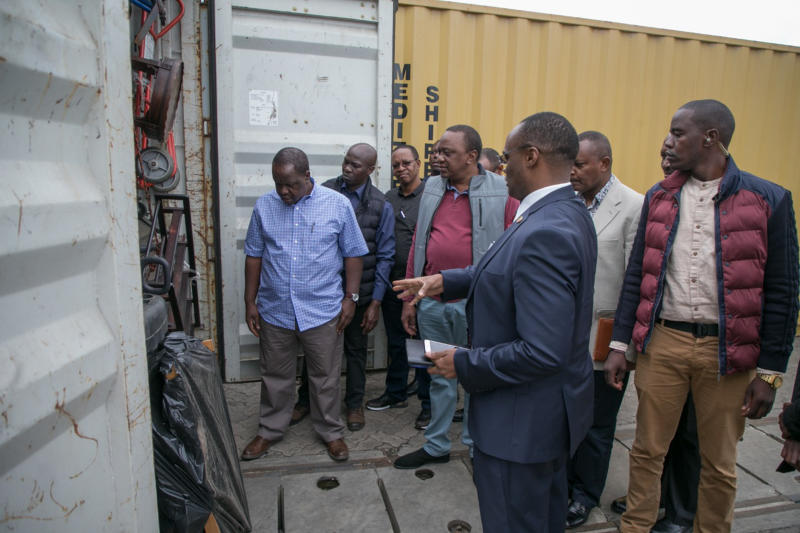×
The Standard e-Paper
Join Thousands Daily

A furious President Uhuru Kenyatta spent three hours on Sunday afternoon at a container depot in Nairobi to learn firsthand the tribulations shared by small importers.
He showed up unannounced and in a nondescript vehicle, on an inspection tour to understand why some 700 containers have been detained for up to two years.